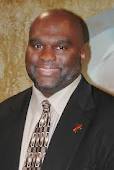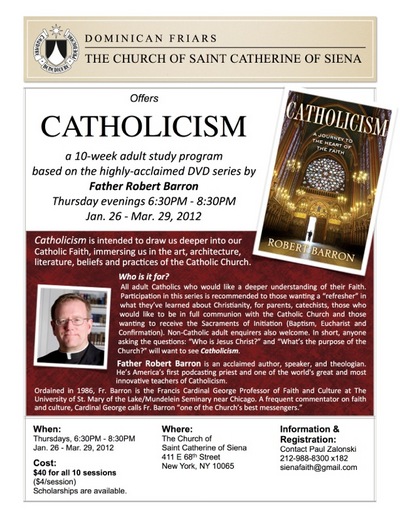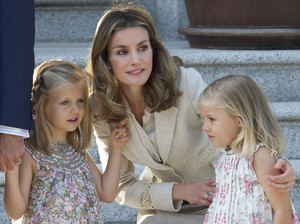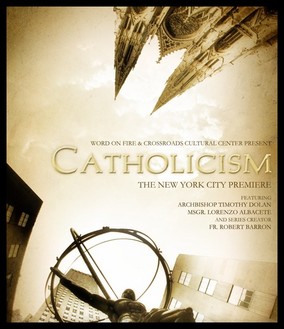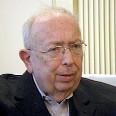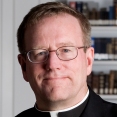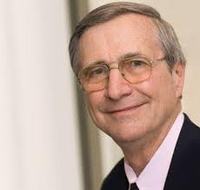 A week ago (February 18, 2012) Dr. Peter J. Kreeft, professor of Philosophy of Boston College and popular Catholic apologist delivered two lectures concerning the conflicts of culture, conscience, freedom and faith in which we find ourselves at these days.
A week ago (February 18, 2012) Dr. Peter J. Kreeft, professor of Philosophy of Boston College and popular Catholic apologist delivered two lectures concerning the conflicts of culture, conscience, freedom and faith in which we find ourselves at these days.
Category: Evangelization & Formation
Evangelization Today : Communion and Pastoral Collaboration between Africa and Europe
The Catholic buzz word is the “evangelization.” It’s running the risk of becoming an irrelevant concept if we don’t take the time to really understand the contours of sharing the faith given to us by the Holy Spirit and authentically lived in the communion of the Church. Some bishops from Africa and Europe had a symposium to explore the needs and desires in living Christianity as an event from the 13-17 February. It didn’t get much press in these parts because (A) it is perceived that neither Africa and Europe are so far away from North America that what the symposium had to do didn’t impact us and (B), well Africa and Europe have little to say to us. Wrong. We are a communion of peoples; live our faith in communion with other Christians around the world not in isolation from the another group of people. What the Church in Africa does should, in fact, shed light on our life of faith. We belong to Christ, therefore to the Church and therefore each other; no Christian is alone.
Listen to what the Pope says here.
Fifty years after the opening of the Second Vatican Council and a few months away from the Synod on New Evangelization, we wanted to look into our hearts about this theme: Evangelization today: Communion and Pastoral Collaboration between Africa and Europe. The human person and God: the Church’s mission to proclaim God’s presence and love. In this Symposium we have found the joy of reunion, and we have assessed the progress made over these eight years. Indeed, the Beatitudes are our common treasure. More and more, they make us discover our complementary nature, but also our co-responsibility and interdependence in the lives of our local Churches. It’s a question of rising to the challenges of an increasingly new Evangelization in our two continents today “For we were all baptized by one Spirit so as to form one body ( …) and we were all given the one Spirit to drink. Even so the body is not made up of one part but of many” (1 Corinthians 12 :13-14). We have rejoiced for the progress we have made in the last decades in the relations between our two continents – the Synods for Africa and for Europe, as well as our meetings, are a testimony to this very fact.
For the full report, see The Vatican Insider
The Marriage Reality: How are you so engaged? Deacon Harold Burke-Sivers speaks at the Siena Forum for Faith and Culture
The Siena Forum for Faith and Culture (NYC) has been running a series on Marriage this year. The Year of Marriage began with Dr. Jim Healy from the Joliet Diocese and Deacon Harold Burke-Sivers of the Archdiocese of Portland was recently at the Siena Forum.
The monastic life can give new life to ailing Church
The monastic life is capable to breathe new life into lungs of an ailing body, the Church. A recent interview with the Prefect of the Congregation for the Evangelization of Peoples, Archbishop Fernando Filoni, gives his observations and direction. While he speaks of The Order of Saint Bridget that was refounded by Blessed Mother Maria Hesslblad, his comments are worth paying attention to and applied to all orders. These nuns, by the way, have one US house in Darien, Connecticut. The interview is here.
Robert Barron’s Catholicism to be shown in New York in 2012
The new evangelization depends largely on the family
Generally once a year the Pope calls together all those involved in the work of each of the Pontifical councils for a plenary session, usually addressing some key item. Today was the Plenary Assembly of the Pontifical Council for the Family
I am pleased to welcome you on the occasion of the Plenary Assembly of the Pontifical Council for the Family, on the occasion of a double XXX anniversary: that of the Apostolic Exhortation Familiaris Consortio, published November 22, 1981 by Blessed John Paul II and the Congregation itself, which he established on May 9 with the Motu Proprio Familia a Deo instituta, as a sign of the importance to be attributed to family ministry in the world and at the same time, as an effective tool to help promote it at every level (cf. John Paul II, Familiaris Consortio, 73). I cordially greet Cardinal Ennio Antonelli, thanking him for the words with which he introduced our meeting, as well as the Bishop Secretary, other employees and all of you gathered here.
The new evangelization depends largely on the domestic Church (cf. ibid., 65). In our time, as in times past, the eclipse of God, the spread of ideologies contrary to the family and the degradation of sexual ethics are intertwined. And just as the eclipse of God and the crisis of the family are linked, so the new evangelization is inseparable from the Christian family. The family is indeed the way of the Church because it is the “human space” of our encounter with Christ. Spouses, ” not only receive the love of Christ and become a saved community, but they are also called upon to communicate Christ’s love to their brethren, thus becoming a saving community ” (ibid., 49). The family founded on the Sacrament of Matrimony is a particular realization of the Church, saved and saving, evangelized and evangelizing community. Just like the Church, it is called to welcome, radiate and show the world the love and the presence of Christ. The reception and transmission of divine love are realized in the mutual commitment of spouses, generous and responsible procreation, in the care and education of children, work and social relationships, with attention to the needy, in participation in church activities, in commitment to civil society. The Christian Family to the extent it succeeds in living love as communion and service as a reciprocal gift open to all, through a process of ongoing conversion supported by the grace of God, reflects the splendor of Christ in the world and the beauty of the divine Trinity. Saint Augustine has a famous quote: “immo vero vides Trinitatem, si caritatem vides “, “If you see charity, yes indeed you see the Trinity ” (De Trinitate, VIII, 8). And the family is one of the fundamental places where you live and are educated to love and charity.
In the wake of my predecessors, I too have repeatedly urged Christians spouses to evangelize both with the witness of life and with involvement in the pastoral activities. I did so recently at Ancona, at the end of the Italian National Eucharistic Congress. There I wanted to meet with couples and priests. In fact, the two sacraments, “at the service of communion” (CCC, n. 1534), Holy Orders and Matrimony, are traced to the sole source of the Eucharist. ” both these states of life share the same root in the love of Christ who gives himself for humanity’s salvation. They are called to a common mission: to witness to and make present this love at the service of the community in order to build up the People of God. This perspective makes it possible to overcome a reductive vision of the family, which sees it merely as the object of pastoral action. […] The family is a source of wealth for married couples, an irreplaceable good for children, an indispensable foundation of society and a vital community for the journey of the Church“. (Homily at Ancona, September 11, 2011). By virtue of this ” family is the privileged place of human and Christian education and remains, for this end, as the closest ally of the priestly ministry. […] No vocation is a private matter, and even less so is the vocation to marriage”(ibid.).
There are some areas where the prominence of Christian families in collaboration with priests, and under the guidance of Bishops is particularly urgent: the education of children, adolescents and young people to love, understood as self-giving and communion, and the preparation of engaged couples to married life with a journey of faith, and the formation of married couples, especially young couples, the experiences associated with charitable purposes, education and civic engagement, and the pastoral care of families for families, towards life-long commitment, giving due value to time dedicated to work and that of rest.
Dear friends, we are preparing for the VII World Meeting of Families to be held in Milan from May 30 to June 3, 2012. It will be a great joy for me and for us all to come together, to pray and to celebrate with families who come from around the world, accompanied by their pastors. I thank the Ambrosian Church for the great efforts made thus far and for those of the coming months. I invite the families of Milan and Lombardy to open the doors of their houses to accommodate the pilgrims who come from all over the world. In hospitality we experience joy and enthusiasm: it’s nice to make acquaintances and friendships, recounting the experience of family life and the faith experience associated with it. In my letter convoking the Meeting in Milan I asked for “an adequate process of ecclesial and cultural preparation“, so the event will be successful and able to actively involve the Christian communities around the world. I thank those who have already taken steps in that direction and call on those who have not yet done so to take advantage of the next few months. Your Council has already provided valuable help in drawing up a catechism with the theme “The Family: Work and Rest“; it has also proposed a “family week” for the parishes, associations and movements, and other laudable initiatives.
Claim the Truth of Christ, says Archbishop Dolan in USCCB address November 14, 2011
You can read Archbishop Dolan’s presidential address in its entirety elsewhere; here I offer a few points from the address to reflect upon:
…our most
pressing pastoral challenge today is to reclaim that truth, to restore the
luster, the credibility, the beauty of the Church “ever ancient, ever new,”
renewing her as the face of Jesus, just as He is the face of God. Maybe our
most urgent pastoral priority is to lead our people to see, meet, hear and embrace
anew Jesus in and through His Church.
Because, as the chilling statistics we
cannot ignore tell us, fewer and fewer of our beloved people — to say nothing
about those outside the household of the faith — are convinced that Jesus and
His Church are one. As Father Ronald Rolheiser wonders, we may be living in a
post-ecclesial era, as people seem to prefer
a King but not
the kingdom,
a shepherd with
no flock,
to believe
without belonging,
a spiritual
family with God as my father, as long as I’m
the only child,
“spirituality”
without religion
faith without
the faithful
Christ without
His Church.
Continue reading Claim the Truth of Christ, says Archbishop Dolan in USCCB address November 14, 2011
CATHOLICSM: The New York Premier
You are invited to a screening of CATHOLICISM with ArchbishopTimothy Dolan’s introduction and a presentation by project’s creator
Father Robert Barron, and Monsignor Lorenzo Albacete.
A reception and book signing following the event.
Presented by Crossroads
Cultural Center and Word on Fire
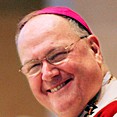 Archbishop Timothy M. Dolan
Archbishop Timothy M. Dolan
Archbishop of New York
President, United States Conference of Catholic Bishops
Author, theologian, columnist
Author, speaker, theologian Founder of Word On Fire.
This event is open to the public and
free of charge, but seating is limited.
Tickets must be obtained online
through www.catholicism.eventbrite.com
Protestant faith community unable to replace Catholic truth
From the point of view of truth, Ed Stannard’s article in today’s New Haven Register, “New Haven Church to Fill Spiritual Void” is a bit misleading when he fails to distinguish between the Church –meaning the Catholic Church– and the various ecclesial communities such as the Protestant types. He reduces the truth of being one, holy, catholic and apostolic, i.e., being authentically Catholic– to being opportunistic. No doubt there are opportunities for evangelization that the Catholics are unable to engage in now, but the presence of the Catholic remains solidly in New Haven and can never be replaced by a denomination, which the Catholics are not.
Catholics can’t ignore personal piety: forming others to be religious and spiritual
How often do you think mainline Christians take the personal piety of others? How frequently do we take someone who says “I am spiritual but not religious”? “Not very often” is the best answer to offer. Saying that one is spiritual and not religious lacks a certain seriousness of belief and unbelief. Catholics in the USA number circa 65-70 million and in the world Catholics number just over a billion this notion of being spiritual and not religious gaining currency. Why? Because a personal relationship with Jesus is lacking. There is no encounter with the living Messiah, Jesus is an abstraction.
